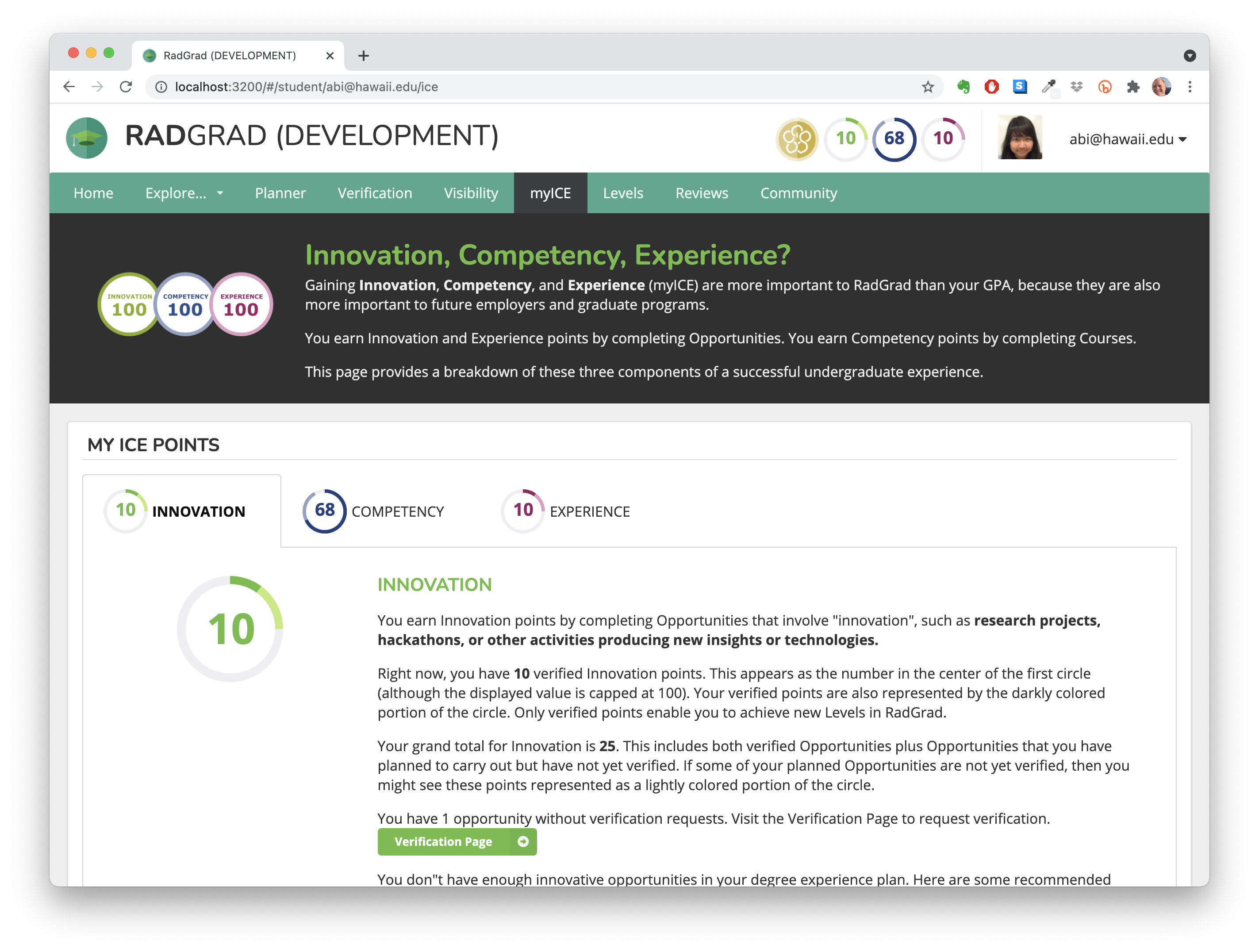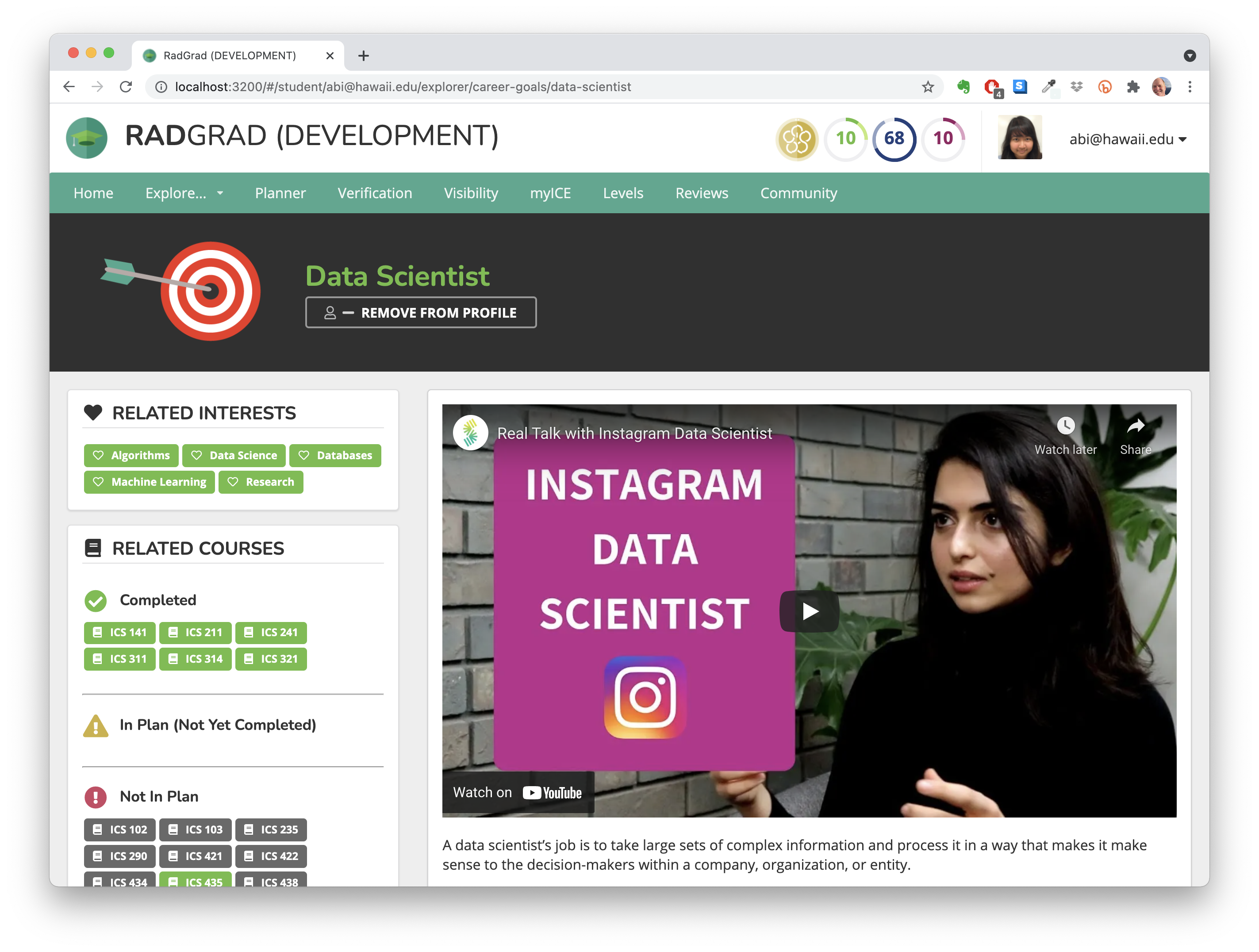Motivation for the RadGrad Project
We believe that STEM disciplines such as computer science must develop new and better ways to improve:
- engagement (i.e. create wider interest in pursuing CS),
- retention (i.e. create mechanisms to improve the chance that students, once pursuing a CS undergraduate degree, will complete it), and
- diversity (i.e. create ways to improve engagement and retention for women and underrepresented minorities).
The fundamental goal of the RadGrad Project is to provide students, faculty, and advisors with an alternative perspective on the undergraduate degree program---which traditionally boils down to a single kind of activity (coursework) and a single metric for success (grade point average).
Our alternative perspective is called the RadGrad Degree Experience, and it gives first class status to both curricular activities (courses) and extracurricular activities (discipline-oriented events, activities, clubs, etc.)
To establish the first class status of extracurricular activities, the Degree Experience perspective replaces GPA as the single metric for success with a three component metric called myICE that assesses student development with respect to Innovation, Competency, and Experience. Each student's Degree Experience also includes a representation of their disciplinary interests and career goals that helps them assess the relevance of potential curricular and extracurricular activities. Finally, the Degree Experience perspective is voluntary. It complements but does not change any existing undergraduate degree requirements of a university.

Research on improving diversity in STEM indicates that a "barrier to entry" is an overly narrow view of STEM application areas and people. To combat this, RadGrad provides students with a faculty-curated knowledge base of discipline-specific "Interests" and "Career Goals", as well as which curricular and extra-curricular activities will help students learn more about them.

The design of RadGrad is influenced by research on diversity, retention and two educational research theories: Individualized Learning Plans (ILP) and Communities of Practice (CoP). ILPs help students connect their current studies to their future career goals. CoP identifies the importance of practitioner networks for both formal and informal learning.